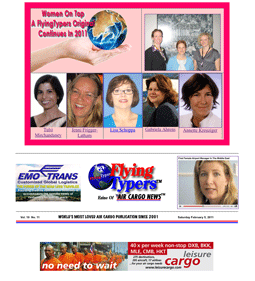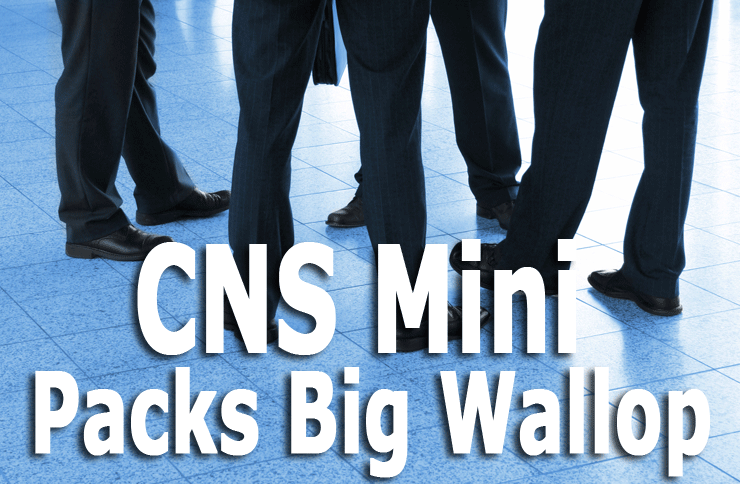
They
used to entice prospective buyers of Packard automobiles, which were
the standard of 1930s motoring luxury in USA, by saying: “Ask
the Man Who Drives One.”
So here at the top are a couple of reactions
to that CNS Mini Conference held last week in Arlington, Virginia that
FlyingTypers received from some people who paid to be there.
 Gregg Borgeson (left) of Ex Works, Inc.
said: “I thought it was an excellent conference. Well-qualified
speakers on a broad variety of topics, all tying into air cargo compliance.
Gregg Borgeson (left) of Ex Works, Inc.
said: “I thought it was an excellent conference. Well-qualified
speakers on a broad variety of topics, all tying into air cargo compliance.
“I learned a great deal, particularly
about the enlightened attitude and approach of various government regulatory
agencies toward fines and penalties.
 “CNS
and Mike White did a very nice job with this conference.” “CNS
and Mike White did a very nice job with this conference.”
George Baglieri, (right) Senior Manager
Operations & Compliance Americas, Swiss WorldCargo adds:
“For me, not only was the content
useful and informative, but the conference (and the promise to repeat
the venue) reestablished the IATA/CNS commitment to act as an intermediary
between the various
government agencies and the carrier community here in the U.S.
“Among the many informative presentations,
one that sticks out in my mind is the pilot for a combined initiative
between the TSA and CBP to obtain additional advanced data directly
from forwarders.
“It's a refreshing approach to see
these agencies finally look for data from the source, and not burden
the carrier community with supplying data they don't own.
“I would definitely attend again.
I would like to see the possibility to hold an additional carrier-only
session to discuss SSI (Sensitive Security Information) topics directly
with the TSA.”
A solid 50-plus attendees came together on a
frigid February morning in Arlington, VA for the first CNS mini conference
of the year. The successful combination of current day issues, high-level
speakers and an overall very well managed and moderated event make this
an easy winner. It could turn out to be a tough act to follow.
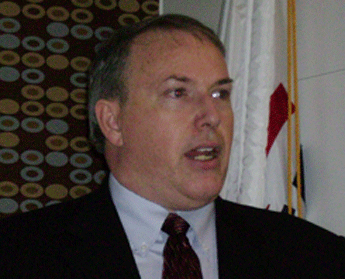 Mike
White, (left) CNS’s Assistant Director of Cargo Standards and
Facilitation is that rare air cargo professional who incorporates depth
and breadth of industry matters with an easy going, approachable manner.
The choice of presenters covered the entire compliance spectrum, from
security to commerce, foreign trade, compliance, customs and cargo data.
Having representatives from the airlines, freight forwarders, trucking,
ground handlers, automation providers and government agencies made for
an effective exchange of information and ideas that the global supply
chain has to stay on top of every day. Mike
White, (left) CNS’s Assistant Director of Cargo Standards and
Facilitation is that rare air cargo professional who incorporates depth
and breadth of industry matters with an easy going, approachable manner.
The choice of presenters covered the entire compliance spectrum, from
security to commerce, foreign trade, compliance, customs and cargo data.
Having representatives from the airlines, freight forwarders, trucking,
ground handlers, automation providers and government agencies made for
an effective exchange of information and ideas that the global supply
chain has to stay on top of every day.
If I have one complaint, it’s the unending
alphabet soup of Washington insiders; acronyms tossed around incessantly.
Here is a sampling for which I hope we can one day offer a glossary:
CSA, IACSSP, STA, IACMS, OMB, TSA, CBP, ACE, ITDS, IMO, WCO, ITN, ICS,
ENS, ATD, ISF, HTS, ATS/ACAS, AES, NTC, QP/QX, CCSP – and I probably
missed a few! Has this made your eyes water yet?
You have to be and remain an optimist to weave
your way through the sheer size of this ball of wax and the volumes
of freight involved. Brandon Fried, the Executive Director of the Airforwarders
Association, counted 4,250 freight forwarders in the U.S. registered
with the TSA. Sandra Scott, Senior Director Compliance at SEKO Worldwide
and a walking institutional encyclopedia, mentioned 106 government agencies
that deal with international freight matters. John McGowan, Sr. VP Border
Security with Sandler & Travis Trade Advisory Services, said 44
percent of all consumer products in this country are imported and represent
75 percent of unsafe product recalls.
To get this air freight to and from the airports,
there are more than 2,000 trucking companies serving 107 airlines operating
25,000 flights a month in the U.S., with seven million air waybills
monthly, importing from 194 countries with exports carried on passenger
aircraft processed by 1,170 screening facilities. This qualifies as
a big country in which government, law enforcement and the private sector
coexist despite constant challenges, changing regulations and a delicate
balancing act between regulatory and customer requirements, which often
conflict. Some respect is in order.
According to Jason Hooks with British Airways
World Cargo, airlines operate in one of the most heavily regulated environments
in the world – no kidding! What IATA and other trade associations
pushed for years has picked up speed when governments waved the magic
wand of mandates for security reasons. What seemed impossible became
yesterday’s deliverable and we haven’t slowed down a bit;
to the contrary, there is more complexity and complications and very
long global supply chains, growing cargo volumes, a multitude of intermediaries
and agents affecting everything from processes to the quality and timeliness
of the data air cargo delivers day in and day out. Rather impressive!
It’s human nature to focus on the many
things that are less than perfect in this world, starting with a lack
of institutional understanding of what cargo is and the constant battle
to educate Washington and prevent kneejerk overreaction, which could
destroy the industry. What stood out was how little mention there was
of the actual cause for all these vast security regimes. A close second
is that it is accepted and so much effort, resources, time and money
is spent to combat the elusive terrorist mind.
The world changed on 9/11 and in its aftermath
wave after wave of new measures were put in place and progress was being
made. Then came a lone (or not) person in Yemen on October 29, 2010
and the entire carefully erected security edifice was stripped of its
impenetrability in one fell swoop. Since then the ‘known shipper’
will likely need to evolve to the ‘trusted shipper,’ although
according to Todd Owen, Director of Cargo Security and Conveyance at
CBP, 70 percent of inbound air cargo is express, i.e., not the typical
airline/forwarder, commercial shipper community which already has various
screening procedures in place. It’s kind of strange that the focus
is always on cargo carried on passenger aircraft, even when evidence
to the contrary is staring you in the face, as was the case here. Perhaps
the express carriers have better lobbyists in Washington who manage
to keep it under wraps and out of the headlines.
Yes, in response to the new threat a joint CBP/TSA
effort has emerged, the Air Cargo Targeting Group, which is working
with industry to develop an initiative to – I paraphrase - “move
the borders back” and mitigate risk without adverse impact of
the economy and stakeholders; a lofty, imminently sensitive goal. What
it means is a pilot that has been underway for a while and started shortly
after the incident, using a subset of standard shipment data to report
to CBP/TSA well in advance of flight departure to the US from airports
in the Middle East and North Africa. Running this information through
the Advance Targeting System for threat assessment positions the agencies
to act rather than react to high-risk shipments that are a relatively
small portion of the total volume with minimal impact on the industry.
This Air Cargo Advance Screening (ACAS) is located
at the National Targeting Center (NTC) and is based on receiving data
from the entity that has the shipment at the earliest stage in the shipping
process; most likely, this is the forwarder. Much work is being done
to the extent possible on establishing the messaging between the parties
using existing transmission pipelines in order to avoid overwhelming
information technology systems. The procedural
concepts and resolution protocols are yet to be defined, including how
the “OK,” “DO NOT LOAD” and the “Need
more information” categories will be transacted and translated
into operational terms.
The way CBP/TSA and the industry associations see it, these are proactive
steps aimed at both addressing a problem while also calming down regulators’
nerves and convincing them to refrain from tabling draconian measures,
which could bring about a collapse of the supply chains. CBP/TSA has
its specialists in 97 countries around the world, working in conjunction
with the State Department and Commerce. Global harmonization of air
cargo screening is a daunting task that allows some hope that reason
will prevail by applying a risk-based, multi-layered security approach
the trade advocates, rather than the regulators’ envisioned vast,
systematic, 100 percent-of-everything apparatus that the TSA uses in
passenger screening.
Despite best efforts, (and this conference was
a testimony to the fact that CBP/TSA are working closely with industry,
which is a huge positive) it takes around 24 months to develop and roll
out a systemic response to a past threat. The old adage here is that
the bad guys only need to succeed once and, as the Yemen improvised
device amply demonstrated, they are getting more sophisticated all the
time. So it’s a deadly, asymmetrical catch up game of massive
proportions, which costs the developed world gigantic resources it can
ill afford. As long as the price of inconveniencing your own population
and making the global supply chains much more challenging than they
need to be is lower than facing up to and dealing with the real threat
effectively, politicians will stay the course.
While of a different dimension, a case in point
is the impending lithium batteries controversy; although there’s
anecdotal but no scientific evidence, several incidents, including the
UPS 747 freighter crash in Dubai have been attributed to these batteries.
A DOT Final Rule is under review at the OMB; the rulemaking would prohibit
the transportation of primary lithium batteries and cells as cargo aboard
passenger-carrying aircraft and would apply to both foreign and domestic
passenger-carrying aircraft entering, leaving, or operating in the United
States. It is hoped that a rigorous cost-benefit-analysis will reveal
that such a regulation would make the U.S. less competitive, and this
in a time of a highly unstable economy. Reconcile that with the president’s
National Export Initiative and its Control Reform measures which among
others, aims to increase U.S. jobs by increasing the number of companies
exporting and expanding the number of markets current U.S. companies
sell to.
A lot of invaluable information condensed
in two days and the parade of high level government officials on hand
and in the know ready to address and discuss current matters resulted
in a well-received conference. Watch this space for more details.
Ted Braun |










 Gregg Borgeson (left) of Ex Works, Inc.
said: “I thought it was an excellent conference. Well-qualified
speakers on a broad variety of topics, all tying into air cargo compliance.
Gregg Borgeson (left) of Ex Works, Inc.
said: “I thought it was an excellent conference. Well-qualified
speakers on a broad variety of topics, all tying into air cargo compliance. “CNS
and Mike White did a very nice job with this conference.”
“CNS
and Mike White did a very nice job with this conference.” Mike
White, (left) CNS’s Assistant Director of Cargo Standards and
Facilitation is that rare air cargo professional who incorporates depth
and breadth of industry matters with an easy going, approachable manner.
The choice of presenters covered the entire compliance spectrum, from
security to commerce, foreign trade, compliance, customs and cargo data.
Having representatives from the airlines, freight forwarders, trucking,
ground handlers, automation providers and government agencies made for
an effective exchange of information and ideas that the global supply
chain has to stay on top of every day.
Mike
White, (left) CNS’s Assistant Director of Cargo Standards and
Facilitation is that rare air cargo professional who incorporates depth
and breadth of industry matters with an easy going, approachable manner.
The choice of presenters covered the entire compliance spectrum, from
security to commerce, foreign trade, compliance, customs and cargo data.
Having representatives from the airlines, freight forwarders, trucking,
ground handlers, automation providers and government agencies made for
an effective exchange of information and ideas that the global supply
chain has to stay on top of every day.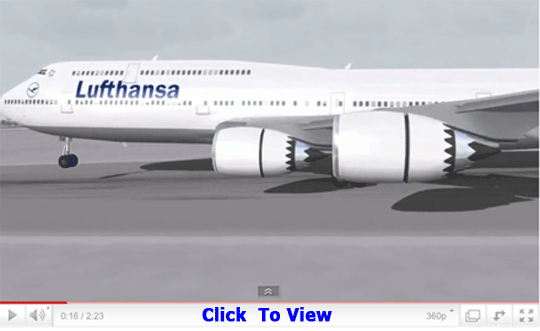

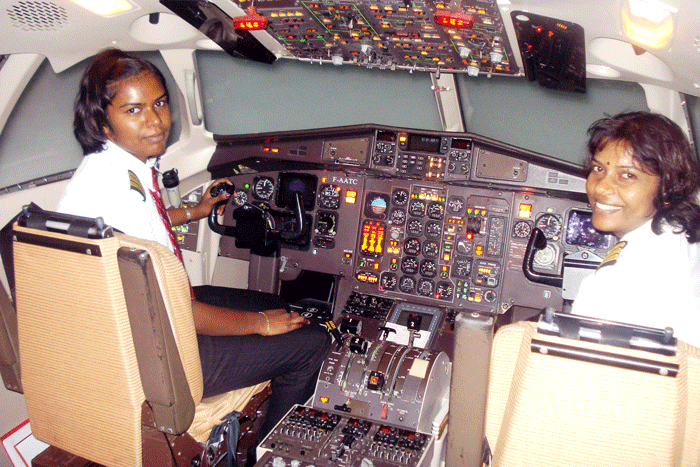
 January
2011 has been good to two ladies working for Kingfisher Airlines.
Capt. Bavicca Bharathi has become the world's youngest licensed commercial
pilot and commander at the age of 21 years.
January
2011 has been good to two ladies working for Kingfisher Airlines.
Capt. Bavicca Bharathi has become the world's youngest licensed commercial
pilot and commander at the age of 21 years. 



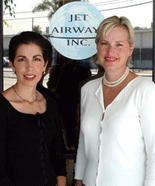

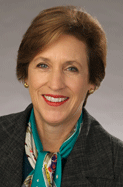














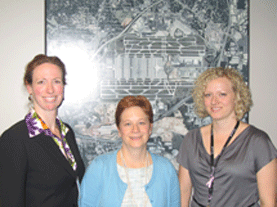

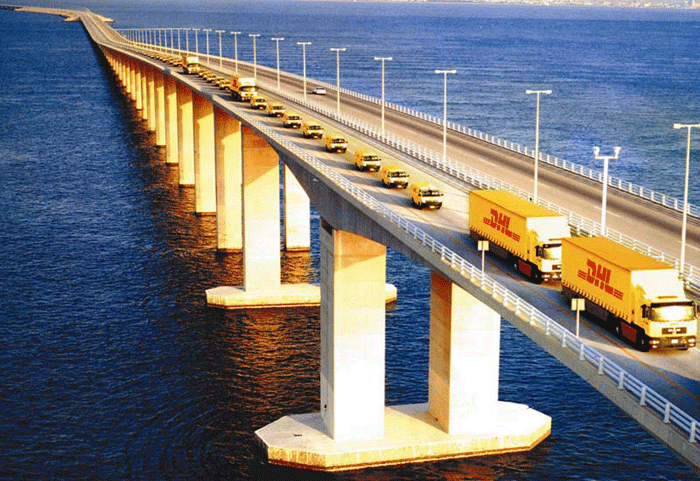
 Said
Ian Clough, (right) CEO for DHL Express U.S.: “As businesses increasingly
go global to capitalize on emerging trends in intercontinental trade,
the expansion of our U.S. hub Cincinnati will position DHL to accommodate
the growing needs of our shippers and importers.”
Said
Ian Clough, (right) CEO for DHL Express U.S.: “As businesses increasingly
go global to capitalize on emerging trends in intercontinental trade,
the expansion of our U.S. hub Cincinnati will position DHL to accommodate
the growing needs of our shippers and importers.” 